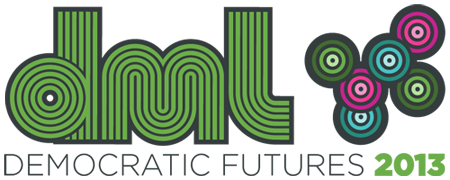WC: Negotiating Globalization, Media Education and Democratic Practice
We propose this panel, “Negotiating Globalization, Media Education and Democratic Practice,” as part of the “Whose Change Is It Anyway? Futures, Youth, Technology And Citizen Action In The Global South” track for DML 2013. It critically engages with key questions, significant to researchers, citizens, and practitioners alike, concerning the unique role and importance of networked media production in efforts to build capacity among youth and communities vulnerable to the effects of poverty, globalization, and racism. This workshop brings together three Digital Media and Learning (DML) summer 2012 fellows who have experience working in global contexts in out-of-school and alternative media programs and projects. Given the utopian ideologies surrounding communication technologies, social media, and networked media production, this panel addresses how these dreams about technology manifest when organizations and initiatives historically located in the Global North partner with organizations, communities, and youth in the Global South on educative and media programming. Concerned with sustaining democratic practice and with critically analyzing the attempts of young people to be involved in the public sphere through media production, this panel offers insights into how youth involvement in civic processes is shaped by media flows, the global political and economic climate, and the non-profits providing educational and media programming to young people.What is unique and valuable to this session is the opportunity to work with and learn about the specific experiences of youth participants in international media programs, and the challenges they face as situated within theoretical and academic work.
Ames and Hauge offer two concrete examples drawn from intensive ethnographic fieldwork with major organizations and initiatives working in the area of children and youth, media production, and civic learning and engagement. Ames’ work on One Laptop Per Child critically examines the utopian beliefs about media and technology that underwrite OLPC’s programming, contrasting those beliefs with the actual experiences of children and communities in Paraguay who have received OLPC laptops. Hauge re-theorizes the role of agency in participation among youth in relation to democratic practice, directly addressing a youth media and community development program run by Plan International in Nicaragua, where rural youth partner with North American youth to produce media and engage other youth about social issues. Taking a step back, Araya’s work examines the political economy of global education and the rise of elite classes across developing societies.



